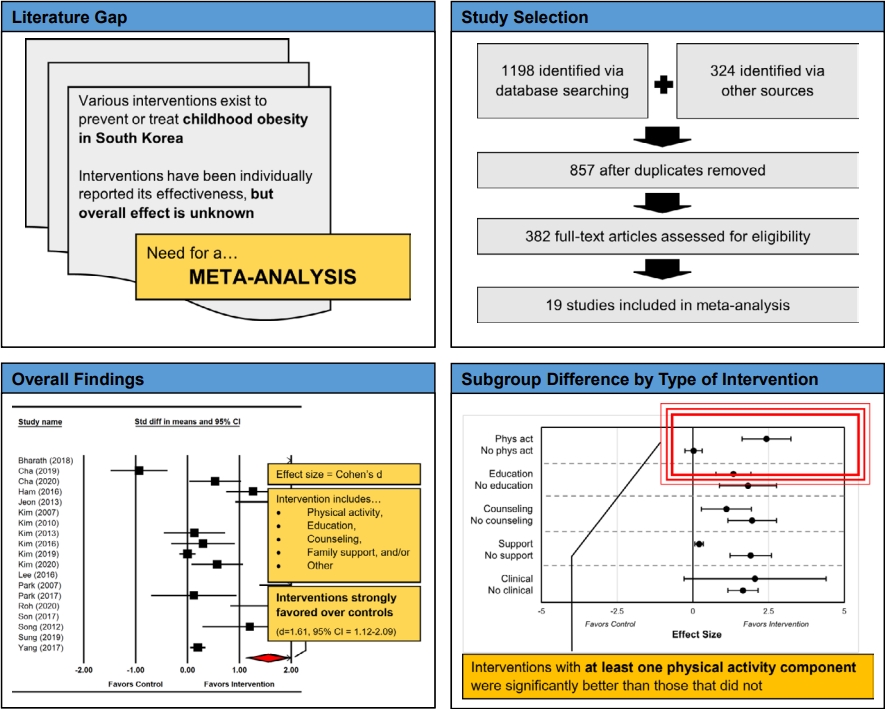
|
Question: What is the overall effect of obesity interventions among Korean children and what affects their effectiveness?
Finding: Interventions were strongly favored over controls. Interventions including at least one physical activity component were significantly better than those that did not. Sex, age, baseline weight category, intervention duration, and the number of intervention components were not significant.
Meaning: Future obesity interventions for Korean children must seek to include physical activity components. |


